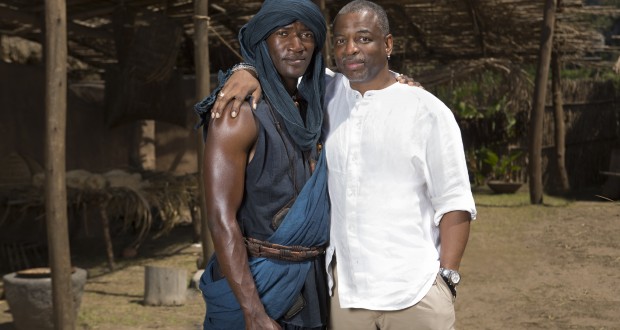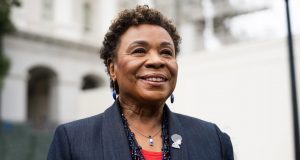By Ronda Racha Penrice, Urban News Service
Kunta Kinte still haunts us.
Nearly 40 years after it premiered, Roots – Alex Haley’s iconic quest, tracing his ancestry from slavery back to Juffure, The Gambia – still inspires African-Americans to reclaim their heritage. Today, the ripple effect of the 1977 ABC miniseries is evident in reality shows, such as Finding Your Roots, and now the History Channel’s reboot of the epic TV program for a new generation. And African-American entrepreneurs have capitalized on the momentum by helping others find their own roots.
“The original Roots was extremely effective for all of us who saw it, black people who saw it, in planting the seed to wonder where am I from, where in Africa is my ancestor from, where is my Kunta Kinte, what was my name before Toby?” says Gina Paige, co-founder of African Ancestry, a Washington, D.C.-based DNA testing service. “African Ancestry was born out of a desire for black people to better understand who they are.”
African Ancestry came to prominence as part of Henry Louis Gates’s 2006 PBS series, African American Lives. Through the pioneering work of Paige’s co-founder, Dr. Rick Kittles, a renowned geneticist and expert in African lineages, the company helps clients uncover their own roots.
“In addition to losing our names, we lost our languages. We lost our traditional beliefs. Our families were torn apart. All of those things have an impact on us even today,” Paige says. “So, we’re the only company that allows people, black people, some identity restoration.”
That identity restoration, which costs $299 per test, can be powerful, Paige says.
After Isaiah Washington discovered his direct African lineage, the actor took an active role in the country where most of his bloodline was traced, she says. “He went to Sierra Leone specifically and then helped to rebuild a hospital and then got dual citizenship and started a foundation, specific to the people with whom he shares an ancestry.”
There are limits to DNA testing, Paige says. “If you’re just a consumer watching these shows, you think you can get one test and get all of that information, and that’s not true. It takes different types of tests, as well as genealogy research itself, to get the same comprehensive amount of information that celebrities receive on those shows.”
That’s where a professional genealogist such as Dean Henry comes in. Henry merged his IT background with his decades-long interest in genealogy and launched Family Pearl in 2013. In addition to traditional genealogical research, the Berwyn, Pa., company helps clients establish accounts on Ancestry.com and similar sites, digitize family documents and pictures, and maintain electronic family trees.
Television has motivated some clients to seek him out, Henry says. “They’ve seen some of the commercials for Ancestry.com, or they’ve seen some of the shows [like] Finding Their Roots, and it piques their interest. They always wanted to learn more about their family, but they didn’t really know how to go about doing it.”
While many folks want to know from where in Africa they descended, some people want to do so by ignoring the most painful period of American and African-American history – and you just can’t do that, says genealogist Kenyatta D. Berry, best known for hosting PBS’s hit series, Genealogy Roadshow. “That’s why you’re here,” she says. “The reason we’re living our lives, doing whatever we’re doing, is because someone survived that.”
On Genealogy Roadshow, Berry, the first black president of the Association of Professional Genealogists, tackles many difficult periods of history. In one recent episode, the Tuskegee Experiment played a central role in a guest’s genealogy. An episode this June features black people who owned slaves. In past programs, relatives who passed for white have surfaced.
Whether its Roots then, Roots now or the countless Roots-inspired TV shows, they all bank on this: knowing who you are is powerful. For Berry, it helps to cancel out the stereotypes and low expectations that black people constantly endure.
“If you listen to what people tell you, and you listen to what the media say about you, then you buy into that crap,” Berry says. “That’s why I think it’s so important to know your ancestors and your ancestry because, if you look at those who came before you, who survived and went through all of that stuff, then you will have more of a greater sense of power and empowerment.”
And that’s why, nearly 40 years later, Kunta Kinte still leads the charge.
 Westside Story Newspaper – Online The News of The Empire – Sharing the Quest for Excellence
Westside Story Newspaper – Online The News of The Empire – Sharing the Quest for Excellence




